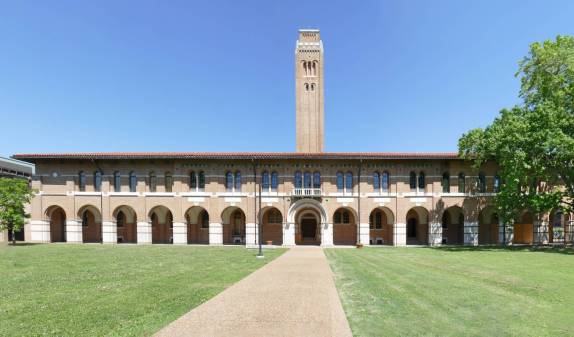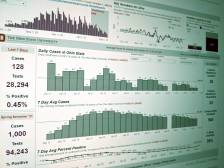As COVID-19 surges, Rice University switches to online instruction

Rice University students will learn online for the first two weeks of fall semester as coronavirus cases surge in the Houston area, institution leaders announced on Thursday.
The university plans to “reassess our instruction and other mitigation policies” during the online learning period, intending to return to in-person instruction, Provost Reginald DesRoches wrote in a letter to campus. He cited unknowns surrounding the delta variant, as well as a surge in cases that’s “especially pronounced” in Texas.
“Instructors are asked to please update their syllabi as soon as possible to reflect how their courses will begin in the fall,” he wrote. “Instructors who wish to be exempted from the online requirement and teach in person for the first two weeks should send a request to me with a brief explanation of why they want to be exempt. Courses, such as graduate research, that can be conducted with masking and appropriate physical distancing will remain in person.”
Online classes are planned from Aug. 25 to Sept. 3. Student move-in schedules were adjusted, and students when they return to campus will be tested routinely; frequency of testing will depend on vaccination status, according to the university’s website. DesRoches in his letter encouraged vaccination as the “single most effective method to protect yourself, your family and everyone on campus.”
Harris County, where Houston is located, is experiencing “a severe and uncontrolled level of COVID-19 … meaning outbreaks are present and worsening and public health capacity is strained or exceeded,” according to the county’s website.
Rice is one of the first universities to switch to full remote instruction temporarily because of the virus. South Carolina State University delayed the start of classes by several days to allow more time for COVID-19 education and vaccination, The State reported. Many campuses are eying an in-person return to campus for the fall semester, with some requiring proof of vaccination to attend. Many institutional leaders are still investing in resources for hybrid and online learning, though, offering new programs and pulling from federal relief funding to bolster Wi-Fi and technology lending libraries.




